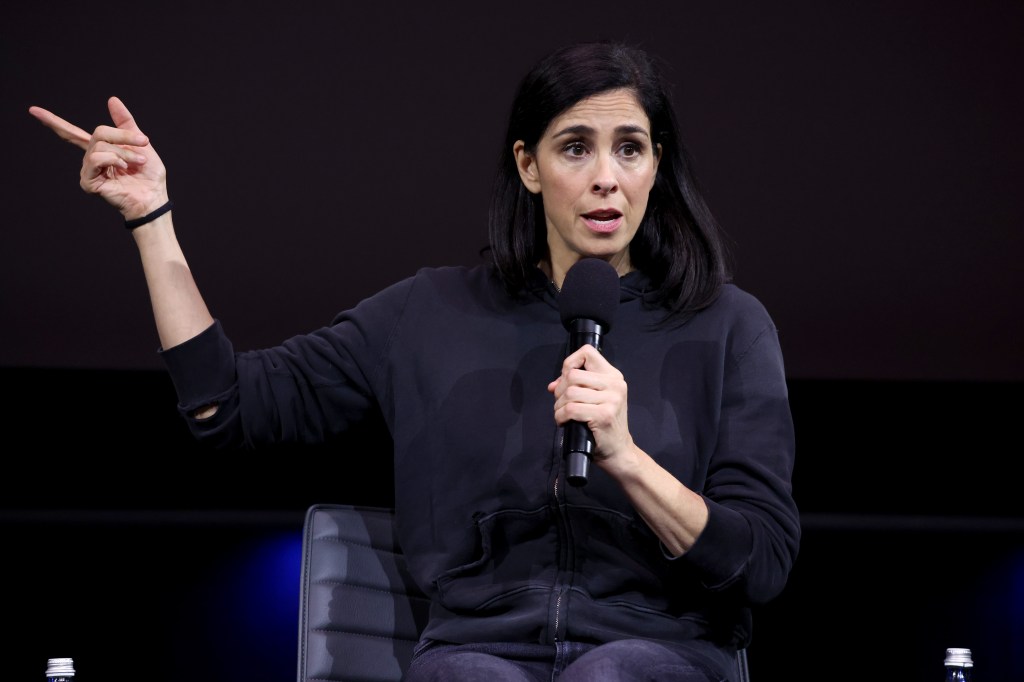
Most of the time, it's unlawful for businesses to utilize copyrighted materials for training their AI systems without obtaining consent or making payments, according to a court ruling. However, this decision states that the lawsuit filed by Sarah Silverman against Meta does not fall under such exceptional scenarios.
On Wednesday, U.S. District Judge Vince Chhabria ruled in favor of Meta regarding the new legal query about whether artificial intelligence businesses fall under the purview of "fair use." This principle within intellectual property law permits creators to utilize copyrighted material without needing explicit permission. This marks the second such ruling made this week supporting an AI company on this matter; previously, another federal judge had also decided in their favor on Monday. ruling against authors In an unrelated case, the conclusion was reached that Anthropic has strong legal footing regarding the legitimacy of their training practices.
Still, Judge Chhabria cautioned not to extend his ruling as a defense of the practice since he was constrained by lawyers for the authors choosing not to advance certain arguments that he viewed as favorable to their side. Those arguments, in his view, relate to AI tools generating works that are so similar to creators' works that they'll compete with the originals and indirectly substitute for them.
"Regardless of how revolutionary LLM training might prove to be, it’s difficult to conceive that using copyrighted books to create a tool aimed at generating billions or even trillions of dollars, whilst also facilitating an inexhaustible supply of rival works which could substantially undermine the market for these books, would qualify as fair use," Judge Chhabria noted.
In Wednesday's decision, the court deemed Meta's use of the books as "extremely transformative" during training. The directive states that through this process,Meta’s extensive language model named Llama is capable of editing emails, composing skits, or offering translation services.
This reasoning aligns with that of U.S. District Judge William Alsup, who determined that the authors involved in the lawsuit under his supervision do not possess the authority to prevent Anthropics from utilizing their work for training purposes, provided they bought the books. Similar to how an avid reader might aspire to become a writer, the judge stated that the AI tool backed by Amazon takes inspiration from these works—not to duplicate or replace them—but rather to generate new creations altogether, as per the court’s ruling.
Nevertheless, determining that a piece of work is "transformative" does not guarantee immunity from copyright infringement claims. Various elements come into play during this assessment. One such element involves evaluating whether the use could potentially damage the market for the original copyrighted content.
Strategic legal tactics were pivotal in securing Meta’s victory. The attorneys defending the authors chose not to devote significant consideration to the aspect of Meta duplicating books to generate a product that could inundate the market with comparable copies—a concept the court referred to as potentially compelling. Rather, they concentrated on demonstrating how Meta’s appropriation of the authors’ work for training purposes undermines the potential market for licensing those same works.
Think about individuals utilizing AI tools to produce large volumes of text much faster than writing manually could allow. These users leverage platforms such as ChatGPT or Claude to author and market their own books, thereby entering into competition with the very materials utilized to train systems from companies like OpenAI or Anthropic.
As it’s quite conceivable that AI-produced literature might overshadow less famous writings or those authored by emerging writers," Chhabria noted. "Although AI-created texts may not significantly impact the popularity of established figures like Agatha Christie, these technologies could easily hinder new talents akin to Agatha Christie from gaining recognition or achieving sufficient book sales to continue their work.
The court stated that the attorneys representing the authors needed to present proof demonstrating that Meta enables users to produce content that directly competes with Silverman's memoir or Rachel Louise Snyder's nonfiction work on domestic abuse.
Additionally, the emphasis in the ruling was on the idea that utilizing books for teaching purposes is vastly different from employing them to develop a tool that enables an individual to produce numerous competing books with only a small fraction of the usual effort and originality required.
Over numerous lawsuits spanning the last couple of years, AI firms accused of unlawfully collecting vast amounts of creative content online for training their systems have presented arguments that seem more like persuasive rhetoric rather than solid law: If you decide against us, you will halt the progress of an innovative technological advancement.
In response, the court stated, “These products are anticipated to yield billions, possibly even trillions, of dollars for the companies behind their development. Should utilizing copyrighted materials for training these models be as essential as claimed by the corporations involved, then they should find a means to remunerate those holding the copyrights.”
Meta continues to confront an independent allegation regarding claims that it improperly disseminated the authors' books during the piracy of their work.
The list of authors encompasses individuals such as Silverman, Ta-Nehisi Coates, and Richard Kadrey, and they are represented by attorneys including David Boies, Joseph Saveri, and Matthew Butterick, along with several others.
- ADL Chief Executive: Kanye's Stunt Reveals Tech Companies' Anti-Semitism Issue
- Europe Imposes $790M in Antitrust fines on Meta and Apple